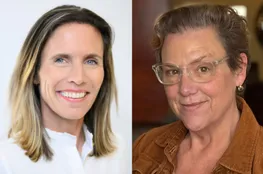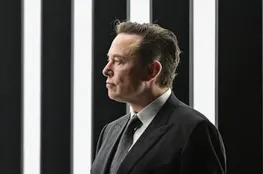After weeks of political limbo, France has a new prime minister, former EU Brexit negotiator Michel Barnier. However, parliament remains bitterly divided, creating uncertainty for various economic sectors, including the dynamic startup ecosystem. This ecosystem had benefited significantly from public support through initiatives like La French Tech. La French Tech refers to France’s 25,000 startups and is also an initiative supported by the French Tech Mission. Clara Chappaz, the director of this mission, is departing this month as her three-year contract ends.
Her replacement should ideally be someone open to change and seeing it as an opportunity. The role of the French Tech Mission director is unique, attached to the Ministry of the Economy and Finance, with a lean team operating out of Station F. The mission is to support the structuring and growth of French startups, both domestically and internationally. The position requires someone adept in communicating with public officials, big companies, and journalists. Although the application period has ended, the job has been described as a dream job, generating significant interest.
Chappaz noted that she received several calls daily from candidates and emphasized that France is fortunate to have the French Tech Mission, describing her tenure as exceptional. The future, however, presents a different scenario than when Chappaz took charge in 2021. The French Tech landscape has evolved, prompting new priorities for the mission. Over the past three years, the sector navigated the challenges of the pandemic, fundraising booms, and subsequent corrections, coupled with geopolitical unrest which highlighted the need for industrial champions.
The French Tech Mission, celebrating its 10th anniversary in 2023, aligned with the France 2030 agenda, shifting focus towards deep tech spinouts and economic impact, rather than just creating unicorns. President Emmanuel Macron set the goal of achieving 100 unicorns by 2030, a significant step up from the previous milestone of 25 unicorns. High-profile scaleups like BlaBlaCar and Doctolib have enhanced France’s global reputation. However, with the tech landscape evolving, new companies like Mistral AI and Pasqal are rising, while others like Luko have seen declines.
The France Digitale association, representing startups and investors, has observed this transformation since its inception in 2012. CEO Maya Noël noted that startups now span various sectors such as manufacturing and healthcare, critical for France's competitiveness and sovereignty. While a leader from these strategic sectors could bring value, Chappaz’s background from Vestiaire Collective also brought unique strengths. During Chappaz’s leadership, initiatives like “Je Choisis La French Tech,” which saw 300 companies and 80 institutional players committing to double public contracts with startups, were implemented.
France Digitale expressed a desire for quicker progress, especially regarding exits. A director familiar with scaleups and international expansion could be beneficial, but a successor with a public service background could navigate governmental support if necessary. Startups in France are responsible for 1.1 million jobs and are pivotal in reindustrializing the country. The Parity Pact, promoted by Chappaz’s team, aims to foster gender equality in tech, and her successor will need to advocate effectively across political landscapes. We wish Clara Chappaz well as she expects her second child and plans her next move in tech innovation.
























